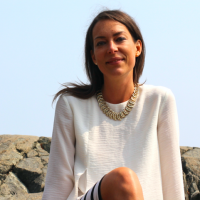We won’t often get the closure from another that we desire.
This means that we must discover it on our own. Forgiveness is how we find peace, no matter if they want to give it to us or not.
In life, we have to realize how to set ourselves free. It is not up to another (ever) to make us happy or feel at peace. It’s a wonderful thing if people are able to assist in creating a space of well-being with us, but if we depend on them to do this, we will certainly be disappointed.
Other people are on an agenda all their own. It’s called “their life.” This means we never need to stop living the thing called “our life.”
Our human experience is filled with relationships. This is what we do as humans. We have an innate need to connect. Sometimes, these relationships will last years, a lifetime, a second—and others may last a few months or days.
We never really know how long people are meant to be beside us. It’s one of those fantastic mysteries of life that always keeps us guessing. We also don’t know when conflict will occur, how it will be solved, or if it can be solved.
The Dalai Lama—a man considered by many to be the public face of Buddhism—knows a little about this uncertainty in life and in relationships. Being the spiritual and political leader of the Tibetan people, the Dalai Lama has stared into the face of conflict his entire life.
Tibet was invaded by the new communist regime of China in 1959, and since then, they have held sovereignty over the Tibetan people and their spiritual and cultural practices.
This invasion was not done gently—and renowned historian and freedom fighter, Alexander Solzhenitsyn, has described China’s rule in Tibet as “more brutal and inhuman than any other communist regime in the world.” The Chinese systematically dismantled all the great monasteries of Tibet and destroyed most sacred texts and historical documents too.
Despite this, the Dalai Lama remained so successfully positive in his relations with the Chinese—even after having to flee his own country due to said occupation—that he gained the profound honour of the Nobel Peace Prize in the late ’80s.
To this day, the Chinese hold control over Tibet, and the Dalai Lama has not returned to live in his homeland. The human rights conditions are currently described as “dismal” in Tibet.
The leader of the Tibetan people has dedicated his life to attempting to form peaceful communications with the Chinese and regain sovereignty for his birth country. However, resolution for him has yet to occur.
However, he teaches that despite how people respond to us (or don’t respond), we must treat them with kindness. The Dalai Lama still views the Chinese as his brothers and sisters, and he continually forgives them without reservation.
“Be kind whenever possible. It is always possible.” ~ the Dalai Lama
Kindness is one of the fundamental principles of forgiveness. The Dalai Lama teaches that we forgive because we do not want to hold onto the poison of anger any longer. Instead, we must promote equanimity in our lives and the lives of others.
In the book, The Wisdom of Forgiveness, the Dalai Lama says, “As soon as I wake up…my first thoughts: Buddha and his teaching of compassion, teaching of Interdependence.”
What if we could all wake up this way? No matter how another person treated us (or didn’t), what if we could have our first thoughts be about trying to hold love instead of anger? Just because something did not work out the way that we wanted it to, it does not mean that we now need to be aggressive toward each other to somehow assert our “rightness” in feeling hurt.
When describing his dealings with the Chinese, the Dalai Lama says, “But if you look at the world today, what is the solution to conflict? Will violence…be the solution to conflict? No…the path of peace is realistic.”
Peace is found through our own ability to cultivate forgiveness. Wouldn’t we rather have compassion permeating our lives?
“If I develop bad feelings toward those who make me suffer, this will only destroy my own peace of mind. But if I forgive, my mind becomes calm,” says the Dalai Lama.
This is the way for us also. To feel equanimity and love, we forgive. I know it almost sounds too simple. But simple things often have the most effective results.
Closure to conflict or suffering with another does not mean we engage in what would create more pain. No, just like the Dalai Lama, we choose forgiveness instead.
~
Author: Sarah Norrad
Image: Flickr/Christopher Michel
Editor: Yoli Ramazzina









Read 13 comments and reply